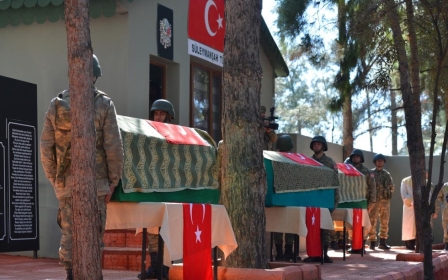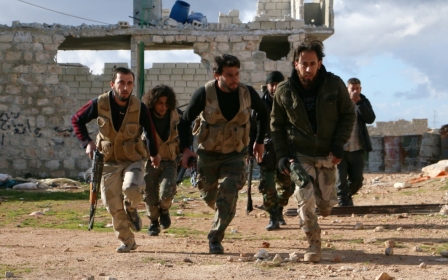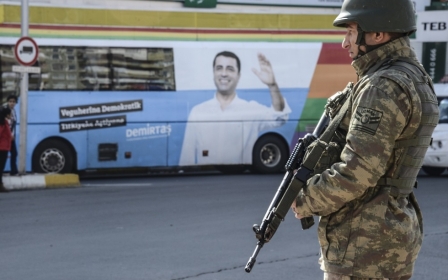Renewed fighting in Turkey's parliament over security bill

Ruling party and opposition lawmakers turned the Turkish parliament into a battlefield once again on Tuesday during an 18-hour session debating a contentious bill to broaden police powers.
Several deputies were injured in a third outbreak of serious fighting within a week in the Turkish parliament, as the ruling Justice and Development Party (AKP) seeks to push through the contentious homeland security bill.
Scuffles and fist-fighting over the bill - which critics claim could turn Turkey back into a police state - marred the debate, which only wound up early on Tuesday after more than 18 hours, according to an AFP photographer.
Some parliamentarians from the opposition Republican People's Party (CHP) shouted slogans such as "This is only a beginning. Keep on the struggle!"
The parliament, where the AKP has a comfortable majority, passed six articles from the bill at dawn, including a controversial measure giving police the powers to detain people for up to 48 hours without the authorisation of a prosecutor.
Angry lawmakers jostled and crowded round the raised podium where the session was being chaired by deputy speaker Aysenur Bahcekapili, who was grabbed by some MPs.
The intensity and length of the session proved too much for some deputies and doctors were called into the chamber to administer first aid and take blood pressure.
The homeland security reform bill was submitted to parliament by the AKP government after deadly pro-Kurdish protests in October.
Prime Minister Ahmet Davutoglu on Monday rejected the criticism and said the bill was compatible with European laws, declaring: "We will not give in."
Opposition parties since last week have been resorting to delaying tactics such as presenting motions on unrelated subjects in order to cause the maximum delay on the legislation.
The AKP has vowed that parliament will work flat out in order to pass the bill after debates began last week, saying the chamber will sit overnight and at weekends if required.
Middle East Eye propose une couverture et une analyse indépendantes et incomparables du Moyen-Orient, de l’Afrique du Nord et d’autres régions du monde. Pour en savoir plus sur la reprise de ce contenu et les frais qui s’appliquent, veuillez remplir ce formulaire [en anglais]. Pour en savoir plus sur MEE, cliquez ici [en anglais].




